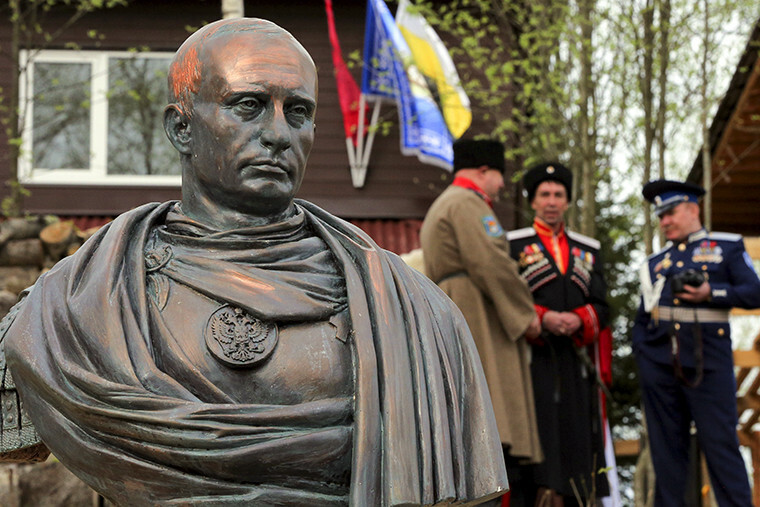Evasive manoeuvres
 The situation has not changed
The situation has not changed

Facing the possibility of the European Union introducing the fifth package of sanctions against the Lukashenka regime, Minsk is increasingly seeking to turn the “integration” agenda into an “anti-sanctions” vehicle.
The resolution of the European Parliament expressing a negative assessment of the Russian/Belarusian Union State programme prompted a swift response from the Secretary of the Union State Dmitry Mezentsev, claiming that MEPs were engaging in “an unprecedented example of interference in the affairs of two sovereign and independent States” in an attempt to negatively influence dialogue between Moscow and Minsk.
Meanwhile, the concept of a “big bypass manoeuvre” rises higher on the agenda. Integration is not a euphemism for joint evasion of sanctions, but Minsk is clearly seeking to conflate the issues in its own interests.
On the same day that the European Parliament resolution was adopted, October 7th, Alexander Lukashenka chaired a foreign policy meeting, during which he expressed his conviction that acting together, Belarus and Russia can counter Western sanctions. “I just spoke to the President of Russia (the telephone conversation took place in the morning – approx. ed.). No issues”, declared Lukashenka.
Also on October 7th, proposals were submitted at the XXI meeting of the intergovernmental commission on military-technical cooperation between Belarus and Russia. According to the Chairman of the State Military-Industrial Committee of Belarus, Dzmitry Pantus, “many algorithms have been developed for interaction with third-country markets to counter the sanctions pressure exerted on both the Russian Federation and the Republic of Belarus.”
On October 6th, at a meeting with Russian Transport Minister, Vitaly Savelyev, Belarusian Prime Minister Raman Halouchanka expressed Belarus’ readiness to increase exports transiting via Russian infrastructure. He also referred to “unfair international pressure, in particular, the anomalous restrictions on the aviation sector, which are and contrary to all norms of international law.”
It is not yet clear to what extent the Kremlin is prepared to stand in solidarity with Minsk and treat sanctions against Minsk and sanctions against Moscow by proxy.
The Komsomolskaya Pravda incident ended in time-honoured fashion, without visible consequences for the Belarusian side. After the detention of journalist Gennadiy Mojeiko and the blocking of the publication within Belarusian territory, the Komsomolskaya Pravda holding company announced the closure of its representative office in Belarus. The press Secretary of the President of the Russian Federation called this “the only correct decision.”
Subscribe to our newsletter




Situation in Belarus
Constitutional referendum: main consequences


 Video
Video
How to count the political prisoners: are the new criteria needed?


 Video
Video
Paternalism In Decline, Belarusian Euroscepticism, And The Influence Of Russia


 Video
Video












